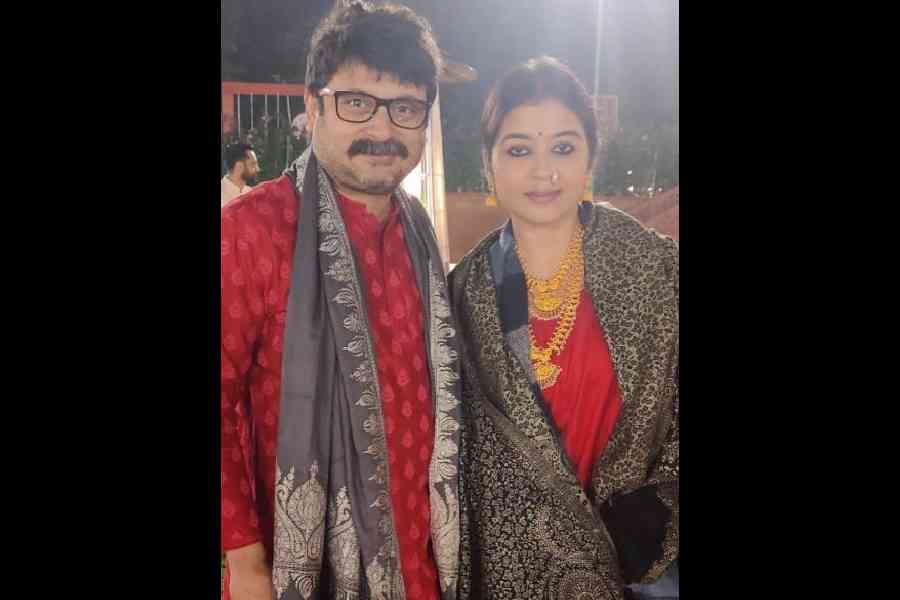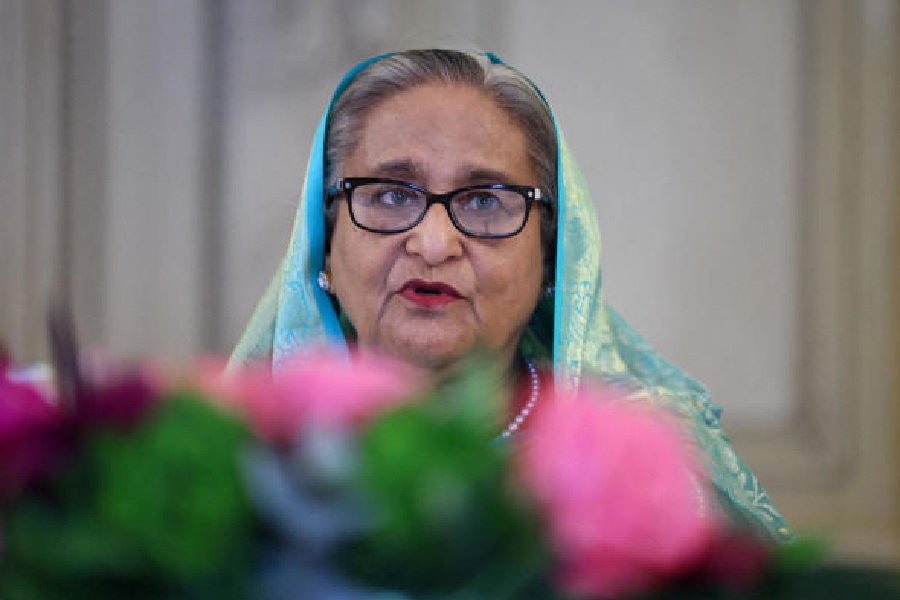Just the other day I told my octogenarian MIL that her son was turning 50. “Jealous girl, you are lying, Baba is just 20,” pat came the reply. Breaking into an impish smile and her eyes lighting up with the remnants of thoughts that crowded her mind, now a bit foggy with age, she even added, “How can he be 50 when I have not reached that age?” She has been wheelchair-bound for the past two years and has now become a child to his Baba from the strong-willed independent woman that she once was, but her zest for life is contagious. And this is what she has instilled into all her children, including her youngest son, Shiboprosad Mukherjee.
Born to an academician father of modest means but profound ideology and a homemaker mother, who found her calling in writing much later, Shiboprosad is the youngest of the four siblings. He was named Mongolprosad by his father, but the possibility of being called ‘Mongla’ by his neighbours made his mother rearrange the name. Expectedly then, in Baranagore, where he was born, he soon became Shibu to all.
A student of Baranagore Ramkrishna Mission, his formative years were more fun than regimented. He once told me that he was caught sneaking in adult magazines in school but what hurt him most was not that he was denied of the ceremonial distribution of sweets in class, but that the ‘Maharaj’ did not speak to him for two months. But he was soon forgiven for his extraordinary participation in co-curricular activities; by the time he was in Class V, he had already carved a niche for himself in acting and elocution.
While in school, he found his mojo at the top of the batting order in ‘khep’ cricket. He would play all day, almost became a force to reckon with and it helped him earn those extra bucks. With one of his early earnings, he bought his mother a sari. By the time he left school, the acting bug had bitten him hard. Even though he enrolled himself into Jadavpur University, where he found an able partner and friend in Sujan Neel Mukherjee, he also got into Nandikar and became a full-timer. There, he was trained by the likes of Rudraprasad Sengupta and Swatilekha Sengupta and became friends with their daughter, Sohini. The going was good until life came to a screeching halt at 20.
On Poila Boisakh that year, he lost his Kaka and Baba within a span of 12 hours. Just when he was left without an assuring umbrella over his head and had no money in his pocket, he was handpicked by Raja Dasgupta for his television serial, Ekushe Pa. It gave him exposure and popularity as Venkat and his small role started flourishing over time. “More shooting days meant more money,” recalled Shiboprosad, who had one shirt to wear to the shoot and had to borrow another from his friend whenever his mother failed to dry it up after washing.
Several acting assignments followed, including Anup Singh’s The Name of a River. Then one day, he was spotted by art director Nitish Roy, who was looking for a young talent for his directorial venture, Jamai No. 1. There, he met Nandita Roy and life was never the same again. Somewhat cash-rich because of the work that kept coming to him, his introduction to Didi was an incident to remember. During the shoot of Jamai No. 1, Shiboprosad would spend a lot of his time smoking and drinking in his room when he didn’t have scenes. That apparently irked Didi no end. Not stopping at rebuking, she even expressed the desire to send him back to Calcutta from Hyderabad, where the unit was putting up.
The animosity soon turned into friendship and both started partnering on television projects. By 2008, they had conceived Icche, but the film took time to be made and it released in 2011. The film was presented by Rituparna Sengupta, to whom Shiboprosad feels indebted even today. Without much financial backing and in dearth of any studio support, Shiboprosad would wait outside theatres to count the footfall each day. An eternal optimist, he told everyone, “If two people come, they will bring four the next day.” And people came. The audience that liked Icche, Alik Sukh, Muktodhara, filled up the theatres for Belaseshe, Praktan, Posto, Haami, Belashuru and the likes.
By the time Muktodhara happened, both Didi and Shiboprosad had seen enough of life. They were cheated of their remuneration, had a producer hurling abuses at them, met many who refused to fund their films that had no stars. I remember an incident that Shiboprosad once shared with me. “We needed a certain camera for a film that had an outdoor schedule. The producer said he’d not give us that and if we wanted, we could rent it with our remuneration. That’s what we did. We paid the whole sum and shared 50 paisa each for our ₹ 1 remuneration.”
To fight against these odds, they decided to release films henceforth from their own company — Windows. By this time, Shiboprosad also found a friend and mentor in Atanu Raychaudhuri, who was so impressed with their films that he came on board as a presenter in Muktodhara. Their collaboration continued till Haami. In my early years of dating Shiboprosad, he had even warned me of getting caught by Atanuda.
Curiously, Shiboprosad and I tied the knot the year he told the story of exes on screen. It was called Praktan. I can safely say at least one dialogue in the film was from real life. It was the scene where Rituparna says there’s a need to live life in the moment, that meetings must be postponed, tours must be rescheduled for a birthday, an anniversary, a date night.
I had once told him that, angry at his odd sleeping hours (it’s usually four-five hours maximum and can easily be three), his continuous working Sundays, his sheer dismissal of the need to unwind. I had even toyed with the idea of travelling alone many a time. I remember crying for eight hours straight to convince him to travel to Kalimpong after the first lockdown! And he too planned surprises and some were scary. I went for a beach vacation with him after packing my bag with pullovers once! And he brought half of Lake Market home when he was once sent for the groceries. So, we at home, decided to leave him to films alone. And that is sometimes scarier for the whole office, especially before a release. Only this time, with Dabaru, he questioned us a thousand times if we did enough for the film. “I am learning every day,” he added to drive home his point.
This year, he has two releases coming up — Aamar Boss and Bohurupi. Both, he says, are gifts to him from Didi on his 50th birthday. And we know how he wouldn’t sleep for the next couple of months till these gifts are shared with the audience, how he would keep to himself now that his long shooting schedule is over, how he would strive to overdo himself, not letting anyone break his chain of thoughts, barring of course, his child-daughter, now in her 80s. Only when she cries, “Baba”, through her room’s two-way audio camera that is perpetually connected to his phone, he packs his bag and calls it a day.











